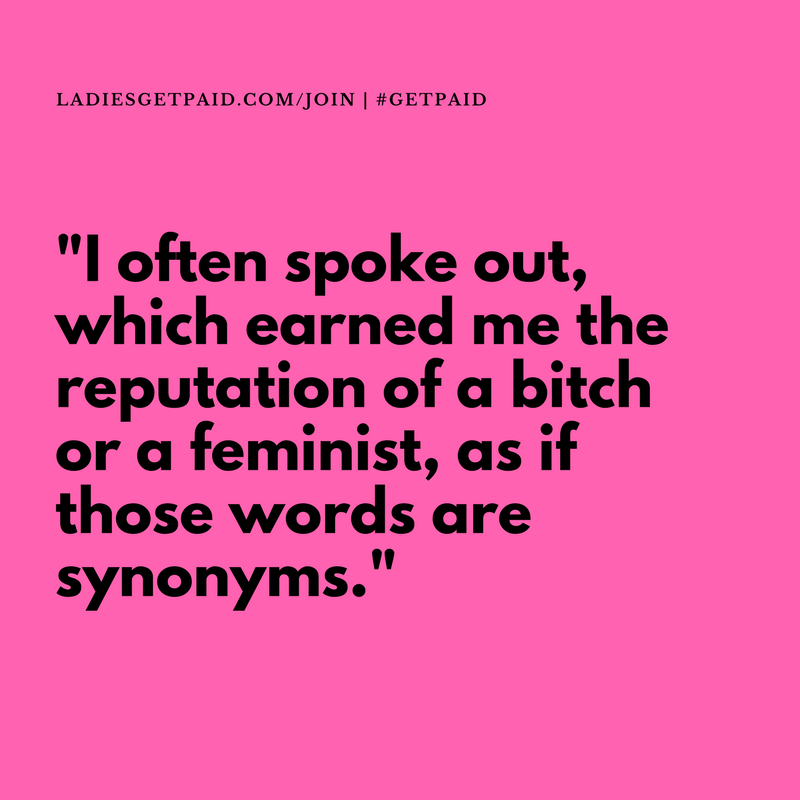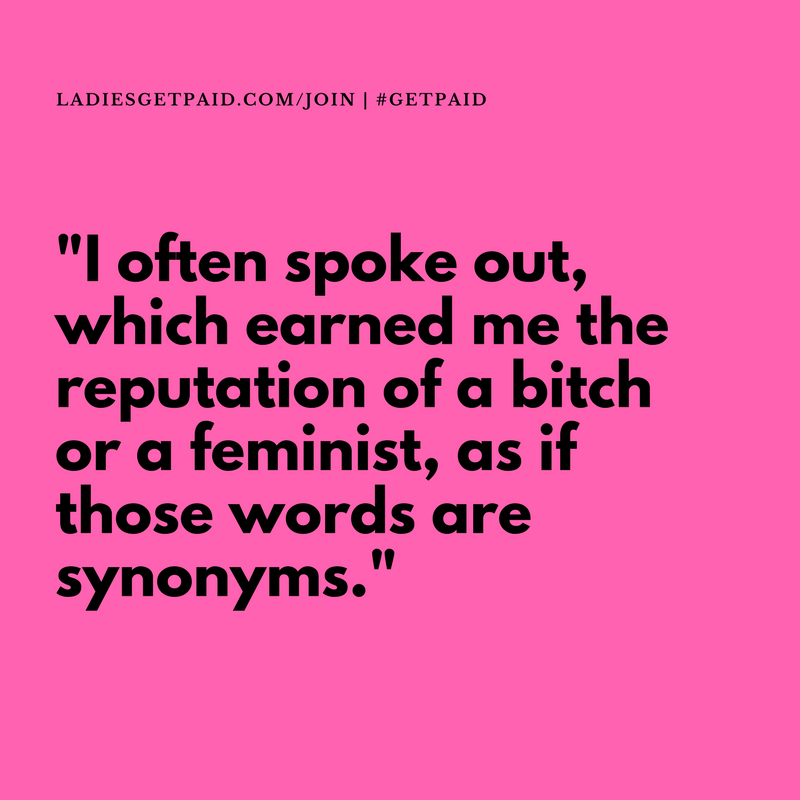
By: Julia Gari Weiss
About a year ago, I was sitting in a conference room for a brainstorm at the marketing agency where I worked. I looked around the room, as I always did, to survey how many females I had in there with me. Often, it was silly to look around since the grand total was usually a whopping zero. On that particular day, there was one other female, a friend of mine who was a strategist. Another male strategist was running the brainstorm that day. He wielded a green Expo marker and swirled it around the whiteboard whenever ideas were called out. We were brainstorming a name for a technology accessories company that sold trinkets such as neon pink and white striped iPhone chargers or sparkly polka dot iPad cases. Their target audience was women ages 14 and up. Out of the approximately ten people in the room, there were only two people who fit that demographic.
This is common in marketing and advertising: a group of older, white males sit in a room and strategize how to sell mascara to tweens. I was used to this being the norm along with crude and inappropriate comments made about women and women’s bodies. It became a sick game of having to pick my battles. Do I fight the male who comments that a certain client looks fat in an Instagram post and begins dissecting every “flaw” on her body? Or do I tell another male colleague, and possibly HR, that it’s inappropriate to Skype me, “what are you wearing underneath that dress?” I often spoke out, which earned me the reputation of a bitch or a feminist, as if those words are synonyms. I would be called “sassy” or “feisty,” which, of course, are never used when a male combats the general consensus. Really, I wasn’t asking for anything other than to be treated equally, and apparently that was asking for too much. These comments occurred so often it became exhausting to contest. At times, it was so obvious to me that a certain comment was inappropriate that it felt silly to point out. How many times are you going to make that same, crude joke about females belonging in the kitchen, not the workplace? What do I say when a marketing director asks me to conceptualize something on this “female empowerment trend”? For me, it became so commonplace that I turned both inward or outward with rage. I almost got good at biting my tongue. Almost.
In that particular brainstorm, the males in the room shouted out potential names for the product, such as “further” and “embellish” and “enhance,” and my female colleague and I rolled our eyes knowing that we’d never become a brand evangelist to any company with those names. Then, a brilliant idea appeared in my head and I shouted out the word “power.” It made sense to me: women are powerful and these products related to powering up technology. The man with the green Expo marker on the other side of the conference room paused to consider this word. He twirled the marker in between his fingers and said, “Well, you know, ‘power’ is actually more of a masculine word.” I practically felt my legs forcing me to stand as I blurted out, “Excuse me? You think ‘power’ is a masculine word? Where does it say that in the dictionary?” The room was frozen. The males lowered their heads down not knowing how to respond. The one female in the room and I looked around, readying ourselves for some sort of logical explanation in the madness of this statement.
Here’s what’s even more disturbing: this man wielding the Expo marker was not a suit. He wasn’t some dull business executive. He’s someone I considered to be generally well thought out and culturally connected. He was someone that was part of my friend circle, and we’d had lunches and dinners and attended events together. He was someone that I considered to be a buddy. I often hear Claire, from Ladies Get Paid justify why men aren’t allowed at events. It’s because sometimes even the men that we think know better don’t actually understand what our everyday battles entail. They may throw out such a careless statement not comprehending its negative impact. And they certainly don’t know firsthand how it feels to be a woman in the workplace nor a person at the receiving end of these oblivious comments.
So, of course, the men in that room didn’t know how to respond because this is what’s been reinforced to them: men equal power. When in reality, it’s a false narrative they’ve created. It’s an invention that continues to be propagated as truth so men can lead a meeting and make decisions for cosmetic products and technology accessories that they’ll never use in their lives, while women are led to believe that it’s a privilege for us just to be here while we make the amount of money equal to the mediocre levels of respect that we’re given. “Write it on the board,” I said to him. He hesitantly walked over to the board and wrote the word “power.” Guess what? The word “power” tested best with the young women we interviewed during a focus group. Though the client, who was also male, didn’t end up picking “power” or variations of the word for his company name, it was a small win in my mind. The fact that it was written on the board describing women and then tested the best with women out of all of the words reaffirmed my decision to fight for it knowing that women are powerful and identify as powerful.
Of course, I eventually left that gig. I’m truly grateful that those incidents all happened, really. It opened my eyes wider. It made me roll my sleeves farther up my arms and speak out. I was unprepared for the enormity of work that we women still have to do in the unequal workplace and in the stuck minds of men. And, it must be said, that I don’t think that men sit in back rooms playing cards and plotting evil, verbal attacks against women while smoking cigars; I think they genuinely have no idea how much privilege they carry around and how that eventually seeps into their vocabulary and their treatment of women. I don’t think they will see it until we become a mirror forcing them to reflect.
About a year ago, I wouldn’t have identified as a feminist because I couldn’t fathom that we’re still dealing with these gender disparities. I didn’t become an activist until I was called upon to act. I’m so glad that I found Ladies Get Paid, a community that understands the challenges that I endured and is working towards making positive changes for women like us. I am grateful for this organization and network. Every single time I receive the newsletter with another woman’s horror story similar to mine or an e-mail with a letter of encouragement from Claire, it feels like a thumbs up to continue speaking out and standing up against insensitive, uninformed, and ill-solicited comments against women’s equality and closing the wage gap.
We are powerful. Women are mighty. We are influential. We do prevail. Do you think men could make 78 cents (or, for that matter, 68 or 55 cents), for every dollar and still show up to work after getting the kids ready for school, with their hair kept, suit pressed, and a smile on their faces ready to kick ass and prove that they’re equal and deserve a better paycheck? I don’t think so; still women do it every day. Women deserve more – more money, more respect, more praise, more promotions, and more positions in POWER.
Have a story to tell? Let us know and we may feature you on the blog.

